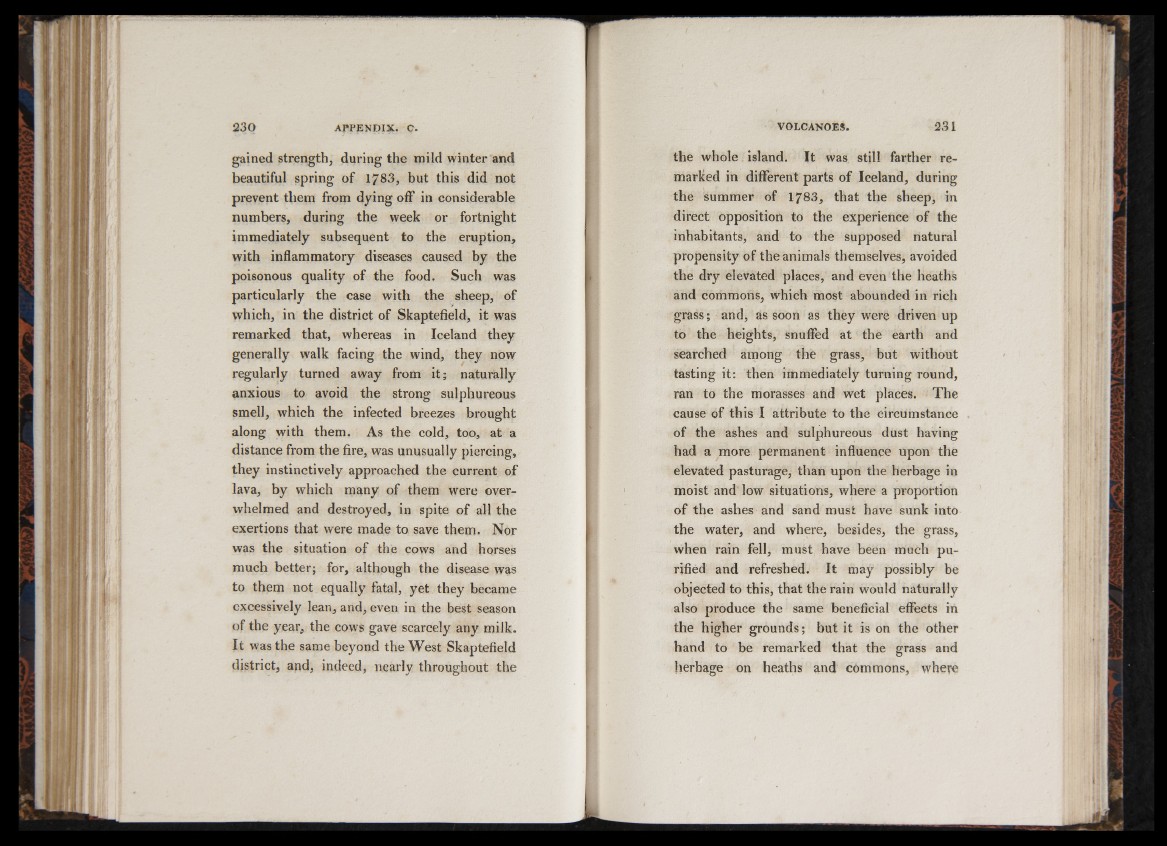
gained strength, during the mild winter and
beautiful spring of 1783, but this did not
prevent them from dying off in considerable
numbers, during the week or fortnight
immediately subsequent to the eruption,
with inflammatory diseases caused by the
poisonous quality of the food. Such was
particularly the case with the sheep, of
which, in the district of Skaptefield, it was
remarked that, whereas in Iceland they
generally walk facing the wind, they now
regularly turned away from it ; naturally
anxious to avoid the strong sulphureous
smell, which the infected breezes brought
along with them. As the cold, too, at a
distance from the fire, was unusually piercing,
they instinctively approached the current of
lava, by which many of them were overwhelmed
and destroyed, in spite of all the
exertions that were made to save them. Nor
was the situation of the cows and horses
much better; for, although the disease was
to them not equally fatal, yet they became
excessively lean, and, even in the best season
of the year, the cows gave scarcely any milk.
It was the same beyond the West Skaptefield
district, and, indeed, nearly throughout the
the whole island. It was still farther remarked
in different parts of Iceland, during
the summer of 1783, that the sheep, in
direct opposition to the experience of the
inhabitants, and to the supposed natural
propensity of the animals themselves, avoided
the dry elevated places, and even the heaths
and commons, which most abounded in rich
grass; and, as soon as they were driven up
to the heights, snuffed at the earth and
searched among the grass, but without
tasting it: then immediately turning round,
ran to the morasses and wet places. The
cause of this I attribute to the circumstance
of the ashes and sulphureous dust having
had a more permanent influence upon the
elevated pasturage, than upon the herbage in
moist and low situations, where a proportion
of the ashes and sand must have sunk into
the water, and where, besides, the grass,
when rain fell, must have been much purified
and refreshed. It may possibly be
objected to this, that the rain would naturally
also produce the same beneficial effects in
the higher grounds; but it is on the other
hand to be remarked that the grass and
herbage on heaths and commons, where